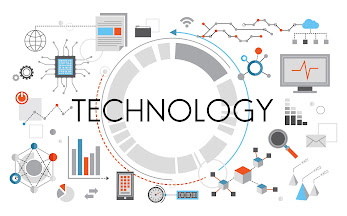The Impact of Technology on Children's Health and Development
The Impact of Technology on Children's Health and Development
Introduction
In today's
modern world, technology has become an integral part of our lives. From
smartphones to tablets, children are growing up surrounded by technological
advancements. While technology offers numerous benefits and opportunities, it
also raises concerns about its impact on children's health and development.
This article explores the effects of technology on children and provides
insights into how parents and caregivers can navigate this digital era while
ensuring the well-being and proper growth of their children. [Pediatrician email list]
The
Positive Influence of Technology
Technology
has undoubtedly transformed various aspects of our lives, and when used
appropriately, it can have positive effects on children's health and
development. Here are some ways in which technology can be beneficial:[Pediatrician
mailing list]
1. Access
to Information and Education
The internet
provides a vast amount of information at our fingertips, offering children
access to educational resources, interactive learning platforms, and virtual
classrooms. Online educational tools and applications can enhance children's
cognitive abilities, foster creativity, and support their academic progress.
2.
Improved Communication and Social Skills
Technological
advancements have revolutionized communication, enabling children to connect
with friends and family worldwide through video calls, messaging apps, and
social media platforms. These interactions can enhance their social skills, promote
cultural awareness, and facilitate meaningful relationships.
3.
Development of Problem-Solving Skills
Engaging
with technology can help children develop critical thinking and problem-solving
skills. Educational games, puzzles, and coding activities stimulate their
minds, encouraging them to analyze situations, make decisions, and find
solutions.
The
Negative Impact of Technology
While
technology offers various advantages, it's essential to be aware of the
potential negative effects it can have on children's health and development.
Here are some concerns to consider:
4.
Sedentary Lifestyle and Physical Health Issues
Excessive
screen time and sedentary activities associated with technology use can
contribute to a sedentary lifestyle, leading to an increased risk of obesity,
poor posture, and musculoskeletal problems. Lack of physical activity may also
negatively impact children's cardiovascular health and overall well-being.
5. Sleep
Disturbances
The use of
electronic devices before bedtime can disrupt children's sleep patterns. The
blue light emitted by screens interferes with the production of melatonin, a
hormone that regulates sleep. Poor sleep quality can affect children's mood,
cognitive abilities, and academic performance.
6.
Cyberbullying and Online Safety
The digital
world exposes children to potential risks such as cyberbullying, online
predators, and inappropriate content. It's crucial for parents to educate their
children about online safety, establish guidelines for internet use, and
monitor their online activities to ensure a secure online environment.
FAQs
about the Impact of Technology on Children's Health and Development
To address
common concerns and provide further insights, let's explore some frequently
asked questions related to the impact of technology on children:
FAQ 1:
Does excessive screen time affect children's eyesight?
Excessive
screen time can contribute to eye strain, dryness, and discomfort, but it does
not necessarily cause permanent damage or nearsightedness. Encouraging regular
breaks, proper lighting, and maintaining an appropriate viewing distance can
help minimize potential eye-related issues.
FAQ 2:
How can parents promote a healthy balance between technology use and other
activities?
Parents can
establish clear rules and boundaries regarding screen time, encourage outdoor
play, physical activities, and hobbies that do not involve screens. Engaging in
shared screen time activities, such as watching educational content together,
can also promote a healthy balance.
FAQ 3:
Can technology hinder children's social skills?
While
excessive use of technology can limit face-to-face interactions, parents can
encourage their children to engage in offline activities, participate in group
events, and develop strong interpersonal skills. Balancing virtual and
real-world interactions is crucial for fostering well-rounded social
development.
FAQ 4:
Are educational apps and games effective in promoting learning?
Educational
apps and games can be effective tools for learning when used appropriately.
Parents should choose age-appropriate, high-quality educational apps and
monitor their child's engagement to ensure they are benefiting from meaningful
learning experiences.
FAQ 5:
How can parents ensure their child's online safety?
To ensure online
safety, parents should establish open communication with their children,
educate them about online risks, and teach them responsible digital
citizenship. Utilizing parental control settings, monitoring online activities,
and setting boundaries can also contribute to a safer online environment.
FAQ 6:
Does technology hinder children's creativity?
Technology
can both enhance and hinder creativity. While some screen-based activities
promote creativity through digital art, music production, and storytelling,
excessive passive consumption of content can limit imaginative thinking.
Encouraging a balance between consuming and creating content can help foster
creativity.
Conclusion
As
technology continues to advance at a rapid pace, it is crucial for parents, caregivers,
and society as a whole to understand the impact it has on children's health and
development. While technology offers numerous benefits such as access to
information, improved communication, and problem-solving skills, it also poses
challenges related to physical health,
sleep disturbances, and online safety. By promoting a healthy balance, setting
guidelines, and fostering open communication, we can navigate the digital era
and ensure the well-being and proper development of our children.




Comments
Post a Comment